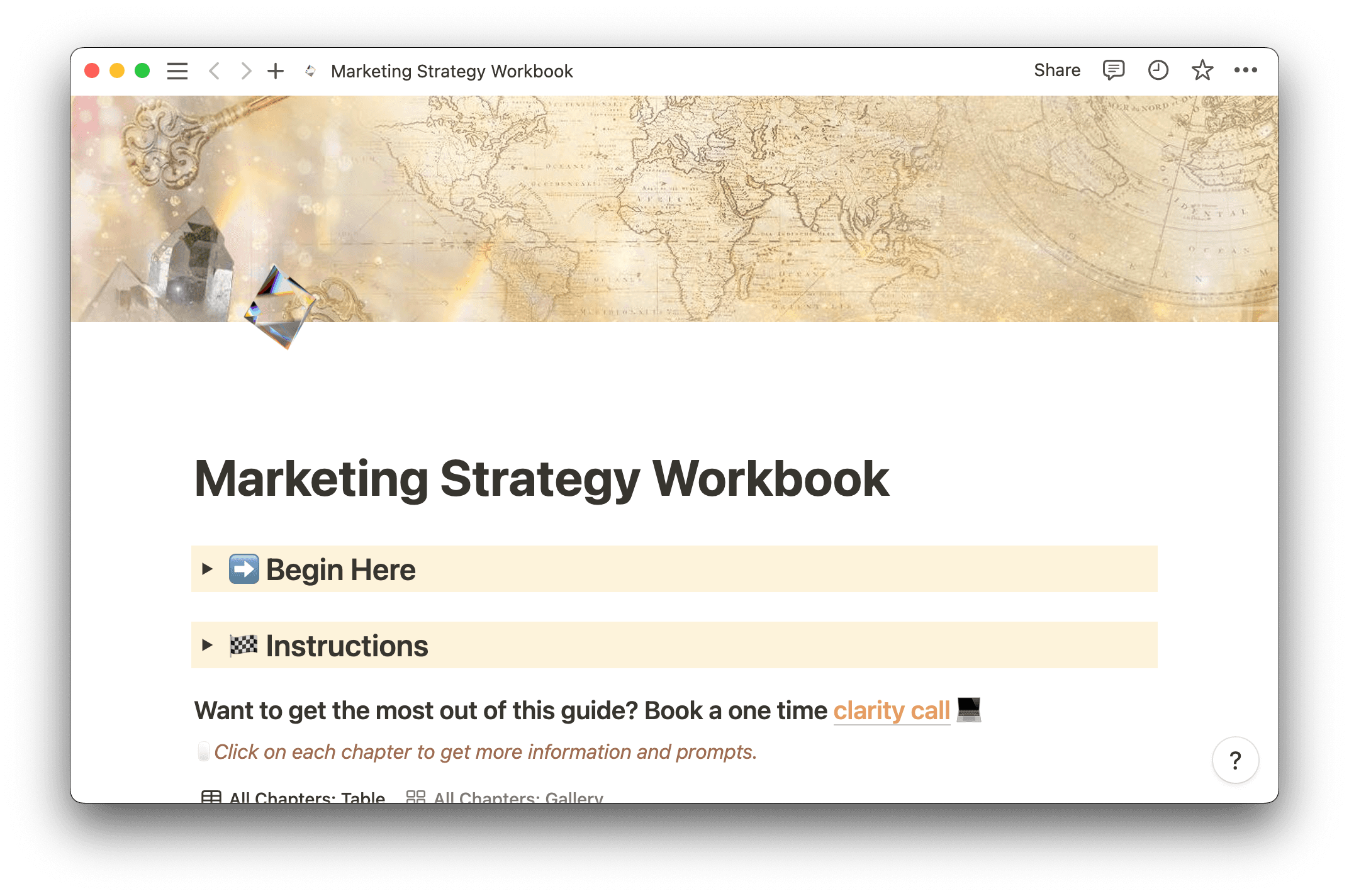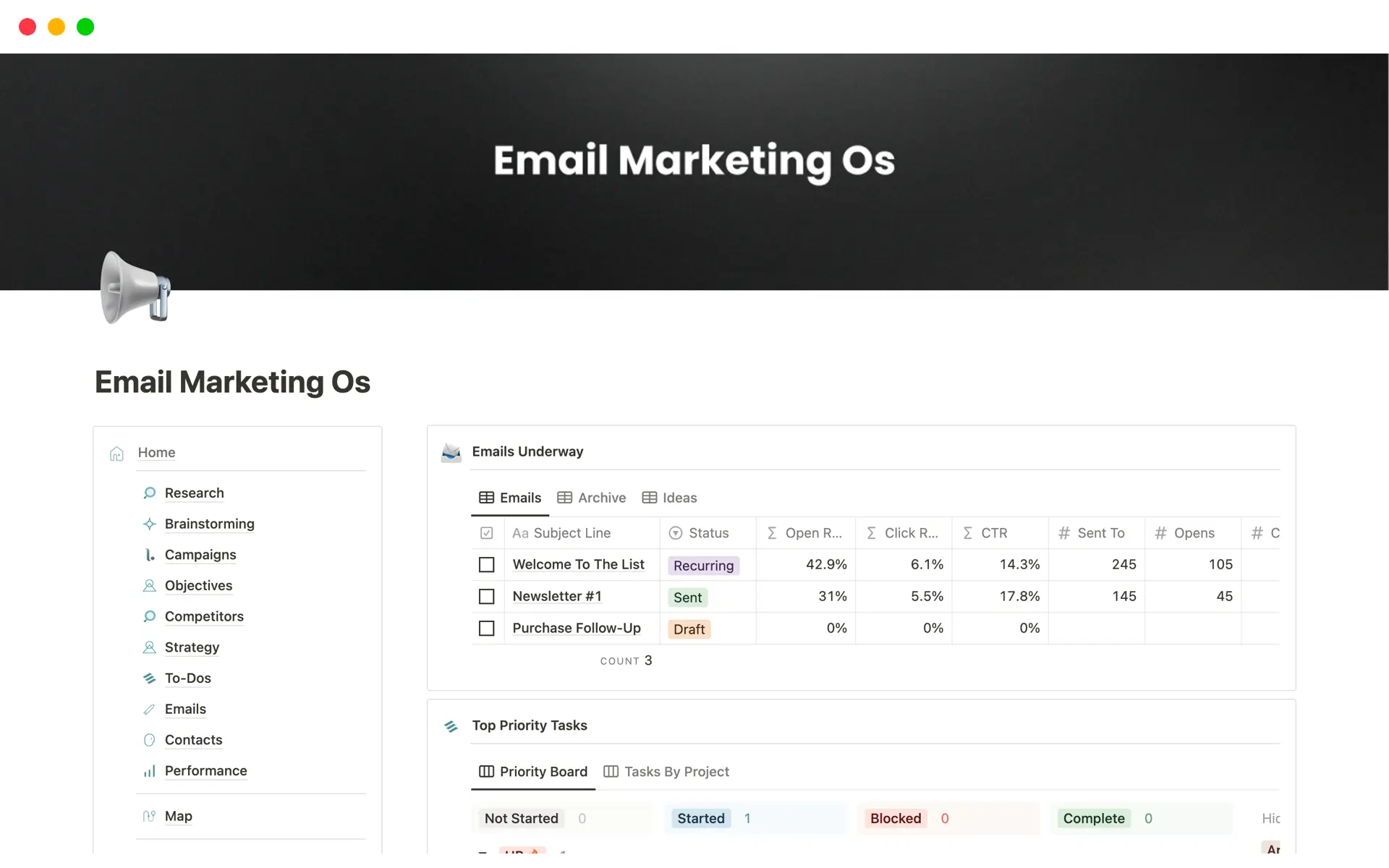With the rise of social media, sometimes it feels like all you need to do to reach an audience is post an Instagram Reel or buy a magazine ad.
But your team’s ability to make fast decisions doesn’t mean you should start a campaign without strategizing. Not all marketing succeeds, and creating content that resonates requires planning and foresight — especially if you’re vying for long-term exposure.
If you want to consistently deliver quality promotions, useful product information, and engaging content, you should practice excellent marketing management. Let strategy — not instinct — guide your campaigns.
What’s marketing management?
Marketing management is how brands and businesses strategize, execute, and monitor advertising initiatives. All marketing campaigns aim to meet high-level organizational goals, like expanding reach or improving customer service, and management strategies pave the way to reaching them.
The process depends on the team and its objectives, but the following activities usually fall into the category of business marketing management:
Developing strategic content
Researching the market and target demographics
Creating a multi-channel advertisin
Budgeting campaigns and purchasing ad space
Tracking the performance of campaigns
Marketing management goals
Marketing management gives your advertising initiatives structure, providing purpose and direction to every step you take. The point is to oversee the process and make sure you’re on track to meeting milestones. When you do it right, marketing management helps you achieve:
A wider audience — successful marketing attracts new leads and drives sales. Content should be compelling enough to grab viewers’ attention and encourage them to click through to your website or wherever else you want them to go. Marketing management tracks your progress and pinpoints the best ways to achieve this.
Excellent client care — marketing isn’t all about making a sale. It’s about forging a long-lasting, trusting relationship with consumers. Marketing plans prioritizing service ensure that customers believe they’ll receive timely, quality deliveries and can rectify issues if any arise.
Larger market share — as your audience grows and customers build loyalty, you gain more profit and a greater market share. Beat the competition by providing not only an excellent product or service, but top-notch customer relations and marketing promotions that your target audience actually enjoys.
An impeccable image — marketing is your opportunity to share your brand’s mission, values, and spirit. Leverage aesthetics and voice to create an image people understand and relate to. If your brand has a laid-back feel, transmit it with approachable texts and visuals that invite fun.
The 9 types of marketing management
Since marketing management is an umbrella term for all advertising initiatives and related activities that a business runs, this process encompasses every strategy under the sun. Here are nine common ways to conduct strategic marketing management:
Marketing strategy — this idea may sound a lot like marketing management in general, but “strategy” directly refers to the plan your business uses to reach customers — not your overall approach. Marketing strategies focus on allocating resources to campaigns that will help the business gain new leads and market share.
Brand management — this area aims to improve or change consumers’ perception of a brand over time. To perform brand management, take stock of your current image and plan to morph or improve it for better resonance among the target market.
Business development — development refers to the ways a business promotes its own growth, whether through partnerships, penetrating new markets, or adjusting its offerings.
International marketing — as the name implies, this type of marketing involves reaching an international audience through global advertising.
Product development — this marketing tactic guides the launch of new products or services, generating awareness of your changing offerings and building hype for new initiatives.
Customer marketing — customer marketing focuses on retention. Keep your audience close with excellent service and products that address their pain points.
Media relations — in this type of marketing, you partner with third parties, like media outlets or celebrities, to influence consumers to purchase or take an interest in your brand.
Sales — sales teams often market a company thanks to their outreach, establishing contact with consumers to offer products and services and generate leads. It also ties in with customer service because it involves client-facing work and represents brand values directly.
Operations — marketing operations refers to the management of advertising procedures, client data, and customer relationship tools.
The key elements of marketing management
Each business approaches advertising differently, but what do marketing managers do to organize and track complex, multi-channel initiatives? Here are some elements to consider when guiding your company’s marketing processes:
Marketing mix: The 4 Ps
All great strategies include the 4 Ps of marketing: product, place, price, and promotion. Using these in your outline makes sure you’re clear on what you’re selling, how, why, and for how much. It’s a simple guideline that helps you hit important points.
Marketing strategy
A marketing strategy is a high-level view of your advertising techniques and goals. The strategy encompasses all aspects of your consumer approach, including branding, distribution channels, and data on the marketplace and target audience. Think of it as a high-level map of how to achieve your goals.
Marketing plan
If your strategy is a map, your plan is the GPS that helps you follow it. This document contains action items, detailed descriptions of marketing tasks, and a budget. All actions you plan to take in this step should tie back to the goals you outlined in the strategy.
Marketing budget
Marketing budgets allocate funding for all initiatives. At this stage you should research how much specific campaigns or methods will cost and set an overall spending limit. This prevents you from going outside the project scope and spending more than necessary.
Marketing campaign
Marketing campaigns are the multi-channel advertising initiatives you use to reach customers. These are what make up your strategy and plan. Campaigns can include, but aren’t limited to, tactics like:
Influencer marketing on social media
Content creation
Pay-per-click advertising
Traditional print ads
The primary functions of marketing management
Marketing management aims to expand audiences, provide an excellent consumer experience, and build a brand’s image. But to actually meet those goals, you need to consider more than just the 4 Ps. Base your marketing management plan on the following essential functions for optimal results:
1. Selling
Marketing and sales go hand in hand — after all, most marketing campaigns aim to generate conversion. Set up your sales team for success using customer relationship management (CRM) tools to store leads, track client service requests, and monitor customer trends.
2. Market research
You can’t just buy an ad and call it a day. Your campaign materials need to resonate with your brand’s audience, and that takes research. To understand what your target demographic wants, research buying trends, what successful competitors offer, and where your audience prefers to receive information.
3. Product management
Marketing exists to bring a product or service to the attention of potential buyers, and if you do that before your products are ready, your campaigns won’t convert. That’s why you need to foster open communication with product creators and managers to understand consumers’ pain points and how your offering provides a solution.
4. Pricing
Most products need to price products and services to sell. Even the savviest marketing campaign could struggle to push an overpriced product unless the high price point and resulting exclusivity is integral to the product’s appeal.
Perform market research to understand the competitive cost landscape and target consumers’ spending power. You should also consider the return on investment (ROI) and make sure the cost of producing and advertising a product doesn’t supersede potential sales earnings.
5. Budgeting
It’s vital to consider how much marketing campaigns will cost before launching them. And once you know what those numbers are, you need to build a budget.
At this stage in the process, you’ll decide whether the rewards of the campaign outweigh the investment. If you find your original plan isn’t worth it, the good news is that there are plenty of free or low-cost marketing tactics to consider, like email, content, and social media marketing.
6. Risk management
Throughout the marketing management process, you need to think about the potential risk associated with the products you market. If you run a sale on a particular item and demand exceeds the stock you have on hand, you’ll fall short on deliveries, and that risks your reputation. The opposite is also true — if you pay too much for stock and it doesn’t all sell, you’re left with unwanted product and a new problem to solve. Use risk assessment to make sure your operations and client services teams can keep up with the promotions you offer.
7. Distribution
Consider the distribution channels you’ll use to market your products or services. The best options will differ for every type of business. A brick-and-mortar store will likely have better luck with local print ads than an e-commerce shop would. Align your distribution and marketing strategies so that they reach the same audiences.
How Notion brings you to the top
Excellent marketing management tools help your team centralize data, track campaigns, and foster collaboration. Notion’s platform can do all of this — and also offer AI writing help when you need inspiration for ad copy.
Use Notion’s library of templates and guides to scaffold your marketing processes. Check out Notion’s marketing team in a box template, marketing project outline, and guide to digital strategies.







